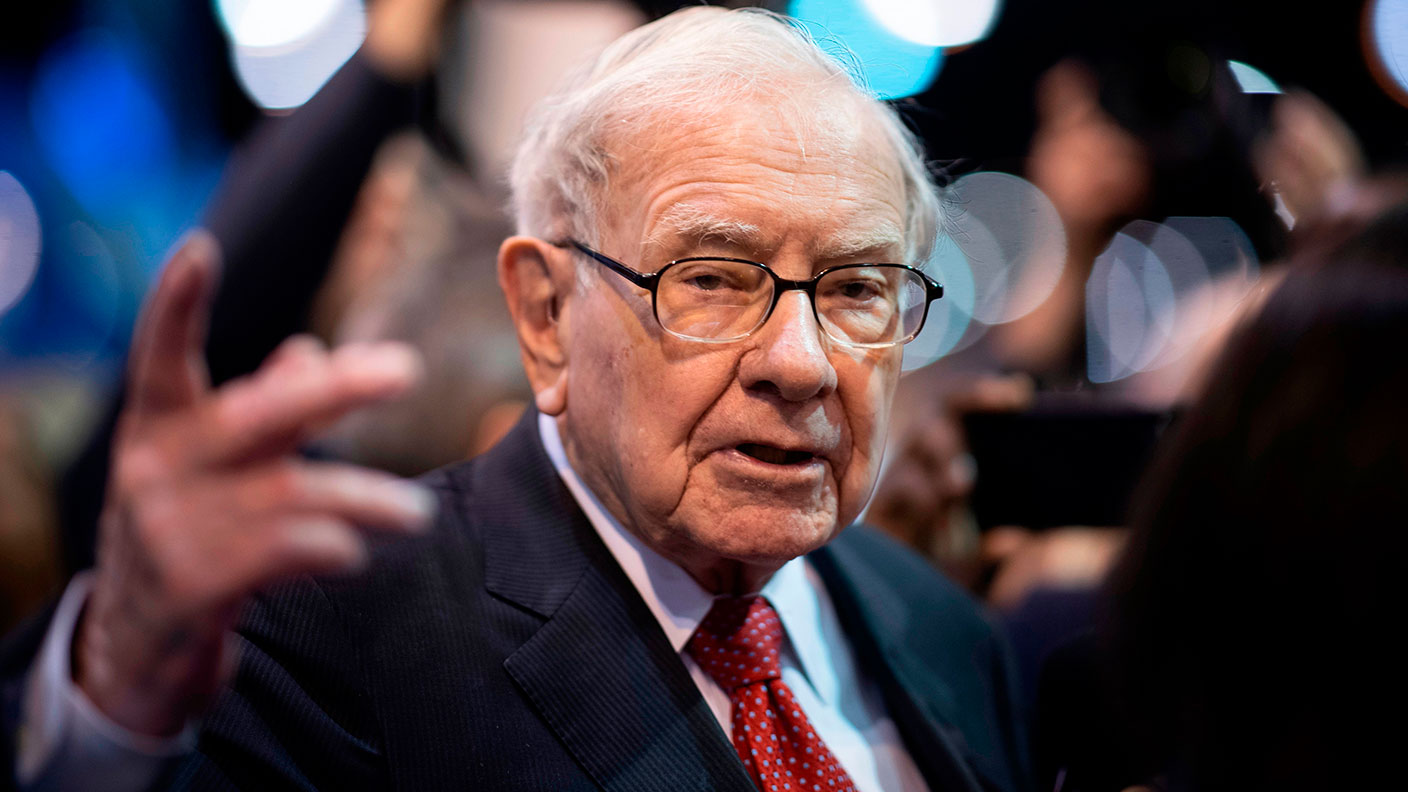Gold is a bargain
The price of gold has fallen by 11.2% since 22 January to just under $1,200 an ounce – that’s more than 35% below its peak of $1,900 in 2011. Now may prove a good time to top up your holdings.
Get the latest financial news, insights and expert analysis from our award-winning MoneyWeek team, to help you understand what really matters when it comes to your finances.
You are now subscribed
Your newsletter sign-up was successful
Want to add more newsletters?

Twice daily
MoneyWeek
Get the latest financial news, insights and expert analysis from our award-winning MoneyWeek team, to help you understand what really matters when it comes to your finances.

Four times a week
Look After My Bills
Sign up to our free money-saving newsletter, filled with the latest news and expert advice to help you find the best tips and deals for managing your bills. Start saving today!

Gold has a bad reputation among some investors. The shiny metal has long been seen as "the investment choice of the cranky and the fearful", says Andrew Bary in Barron's. It yields nothing, and in the words of Warren Buffett, it just "looks at you". It has certainly fallen out of favour this year. The price has fallen by 11.2% since 22 January to just under $1,200 an ounce that's more than 35% below its peak of $1,900 in 2011.
As a result, however, gold looks "inexpensive". This may prove a good time to top up your holdings in this out-of-favour asset class. Investors should hold 5%-10% of their portfolio in gold.
Hedge against higher prices
For one thing, inflation is beginning to pick up around the world. The yellow metal has served as hedge against inflation eroding the value of stocks and bonds. "Gold was $20.67 an ounce 100 years ago and that bought a good men's suit," as Bary points out. "At $1,200 an ounce, the same is true today."
MoneyWeek
Subscribe to MoneyWeek today and get your first six magazine issues absolutely FREE

Sign up to Money Morning
Don't miss the latest investment and personal finances news, market analysis, plus money-saving tips with our free twice-daily newsletter
Don't miss the latest investment and personal finances news, market analysis, plus money-saving tips with our free twice-daily newsletter
It has also done well in times of crisis used as a safe haven for centuries, it's an asset that tends to thrive on bad news. Gold rallied by 17% in the six months after Lehman Brothers collapsed a time period when the S&P 500 fell by more than 40%.
Gold is rare all the gold mined in the world would fit into two Olympic-sized swimming pools and that makes it valuable. Annual new mined supply adds less than 2% to the global total, so it's not easy to boost supplies of gold quickly. With paper money, on the other hand, the printing presses can produce more in minutes. That's why "people have historically viewed [gold] as a hedge against government depreciation of local currency", Keith Trauner of the GoodHaven fund management group told Barron's.
Cryptocurrencies have been touted as an alternative to gold, as it is also expensive to mine more of them. But bitcoin, which dropped 55% this year, remains highly volatile, and it's still very difficult to trade. According to some, meanwhile, gold's role in protecting against inflation may have been overstated. "If you strip out the 1970s, you find the relationship between gold and inflation is quite weak," Brian Lucey, professor of international finance at Trinity College Dublin, told Reuters.
"That is because you have a very different inflation regime in the late 1980s and 1990s than you had in the 1970s." Back then, double-digit inflation was the norm. "We're not going back to that."
But prices are set to rise as labour markets tighten, and central banks are poor at containing inflation. There are also still plenty of investors scarred by the 1970s, which bodes well for demand. This week's big gold merger (see page 9) should also spur interest. Time to stock up.
Get the latest financial news, insights and expert analysis from our award-winning MoneyWeek team, to help you understand what really matters when it comes to your finances.
Marina Gerner is an award-winning journalist and columnist who has written for the Financial Times, the Times Literary Supplement, the Economist, The Guardian and Standpoint magazine in the UK; the New York Observer in the US; and die Bild and Frankfurter Rundschau in Germany.
Marina is also an adjunct professor at the NYU Stern School of Business at their London campus, and has a PhD from the London School of Economics.
Her first book, The Vagina Business, deals with the potential of “femtech” to transform women’s lives, and will be published by Icon Books in September 2024.
Marina is trilingual and lives in London.
-
 MoneyWeek Talks: The funds to choose in 2026
MoneyWeek Talks: The funds to choose in 2026Podcast Fidelity's Tom Stevenson reveals his top three funds for 2026 for your ISA or self-invested personal pension
-
 Three companies with deep economic moats to buy now
Three companies with deep economic moats to buy nowOpinion An economic moat can underpin a company's future returns. Here, Imran Sattar, portfolio manager at Edinburgh Investment Trust, selects three stocks to buy now
-
Why Warren Buffett now likes gold
News Warren Buffett, who has has long ridiculed gold as a non-productive asset, now thinks it is set to shine, after buying shares in miner Barrick Gold.
-
 Why Warren Buffett’s purchase of Barrick shares is such a big deal for gold-mining stocks
Why Warren Buffett’s purchase of Barrick shares is such a big deal for gold-mining stocksNews Warren Buffett has bought half a billion dollars’ worth of shares in gold miner Barrick. That’s a big deal, says Dominic Frisby. We could be at the beginning of a bull market in gold-mining stocks.
-
 Warren Buffett, hater of pet rocks, buys his first gold mine
Warren Buffett, hater of pet rocks, buys his first gold mineNews Legendary investor Warren Buffett has always displayed contempt for gold as an investment. So why has he bought a gold mine? John Stepek looks at what we can learn from his purchase.